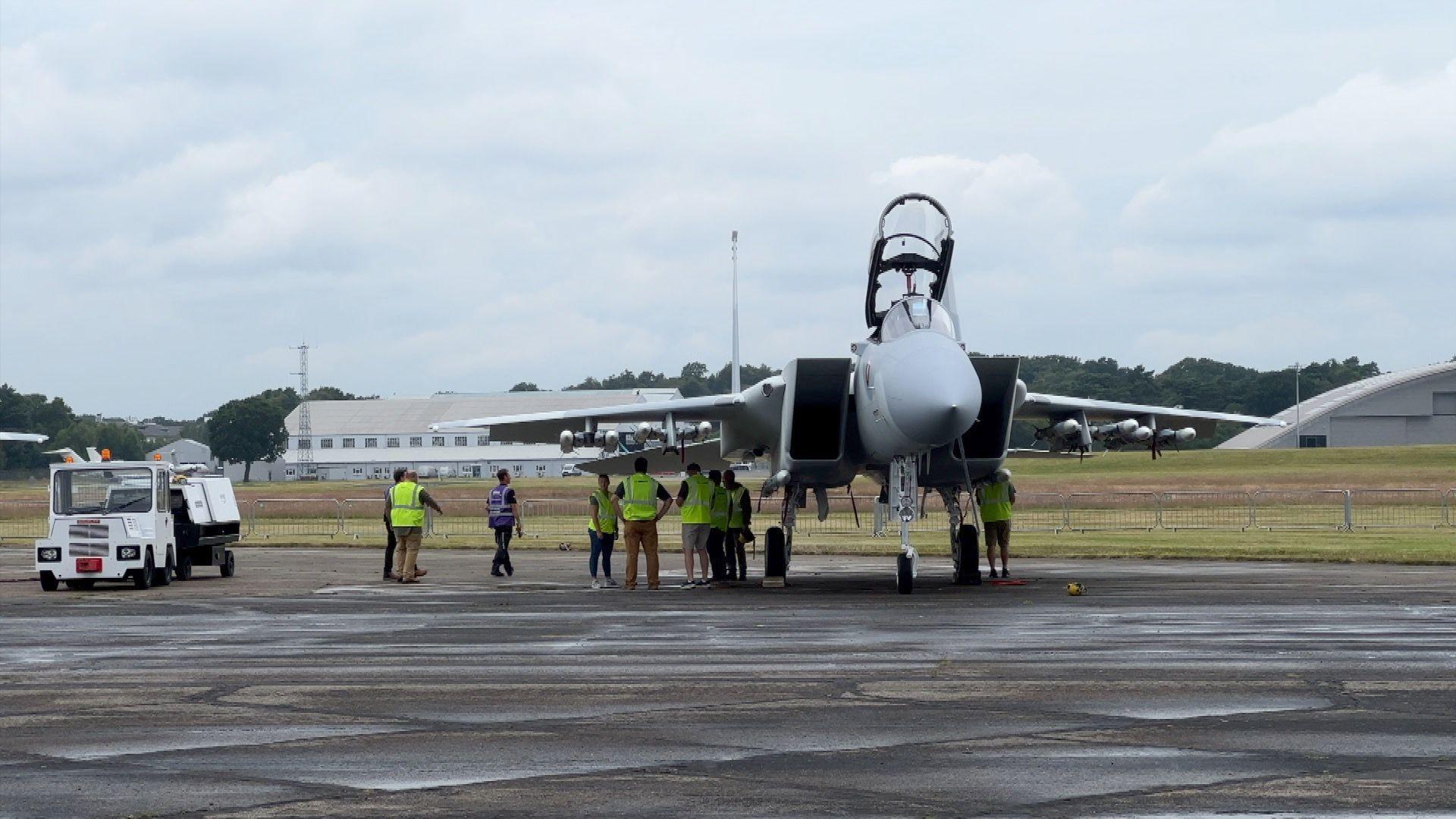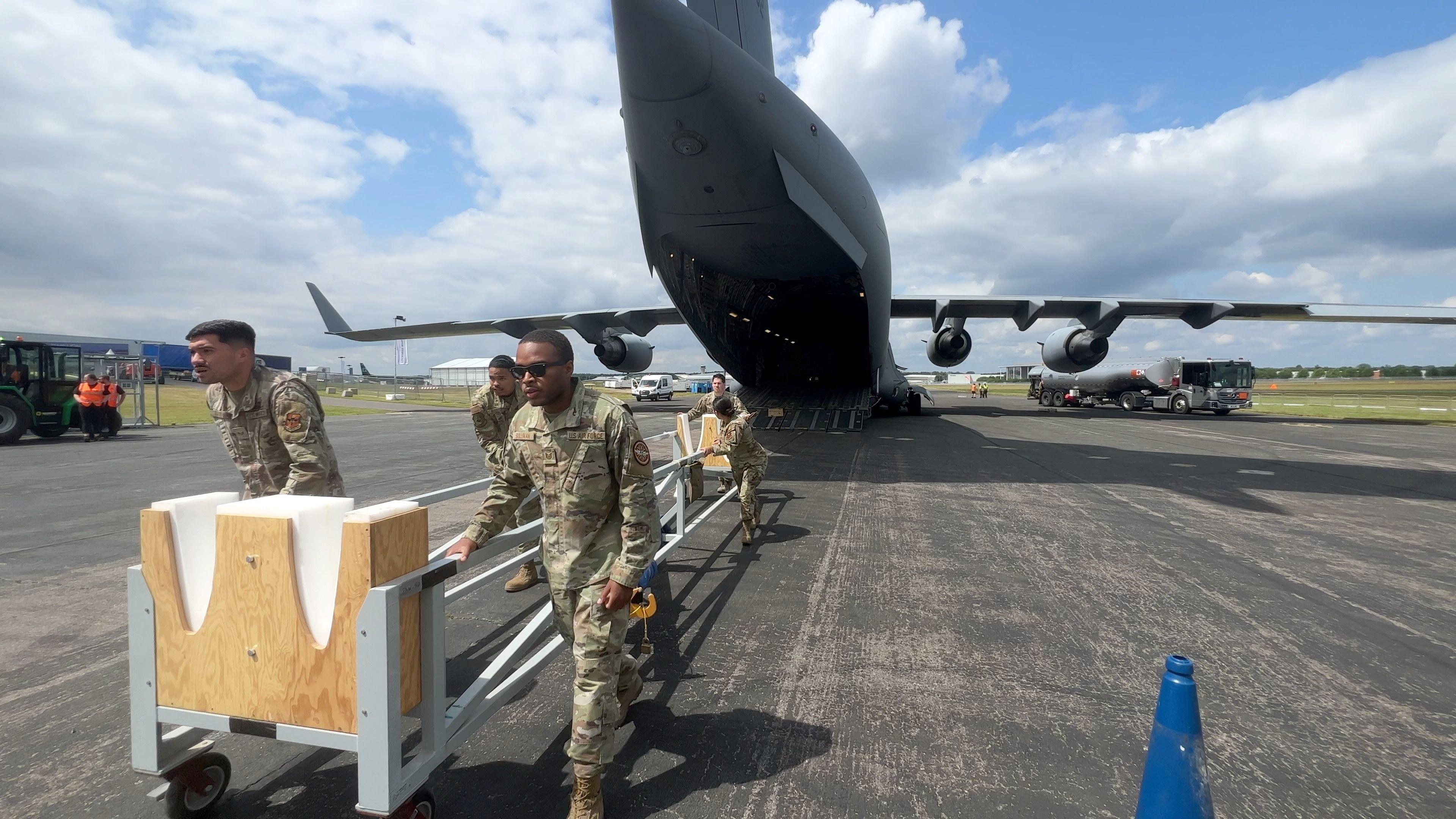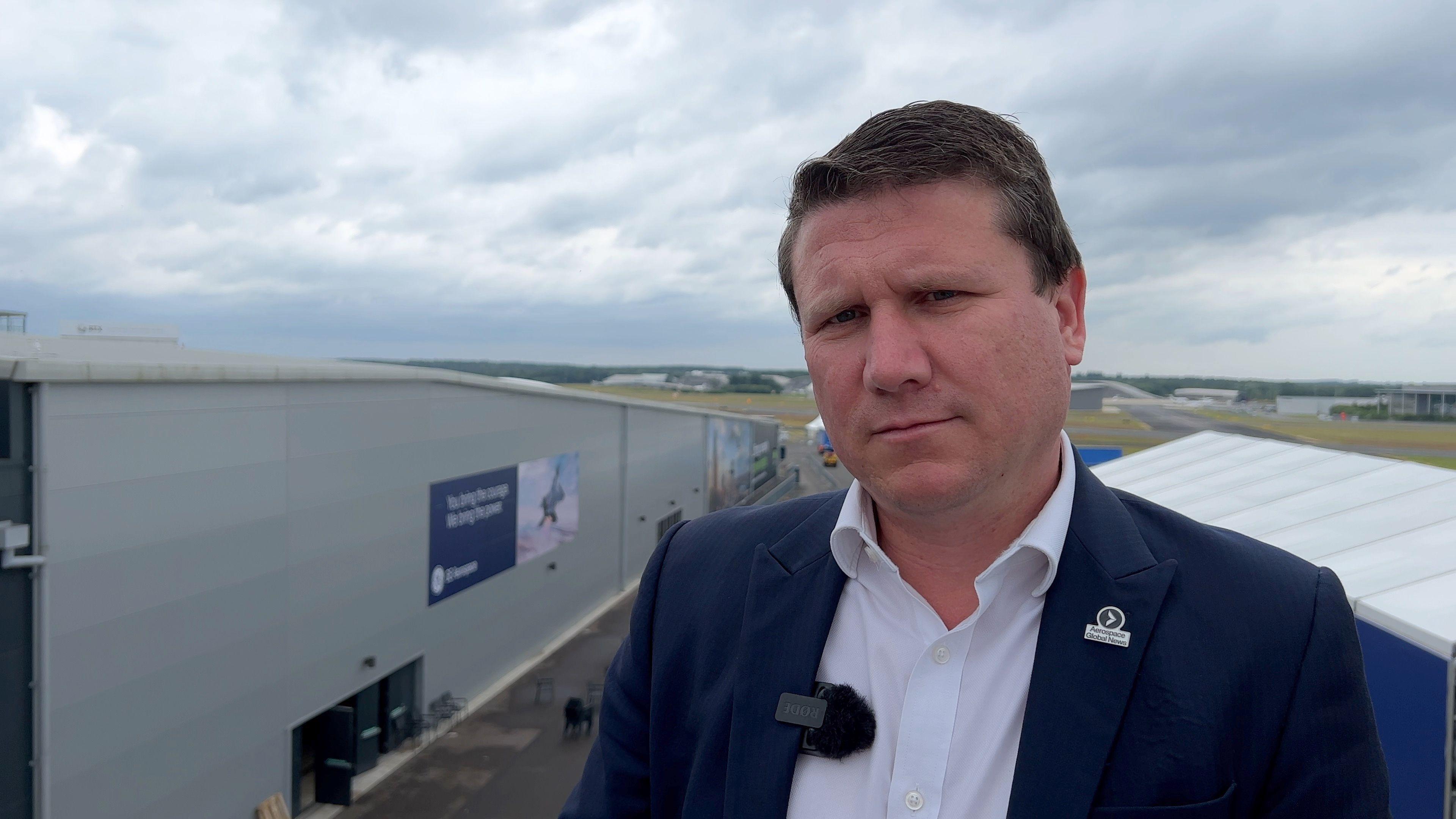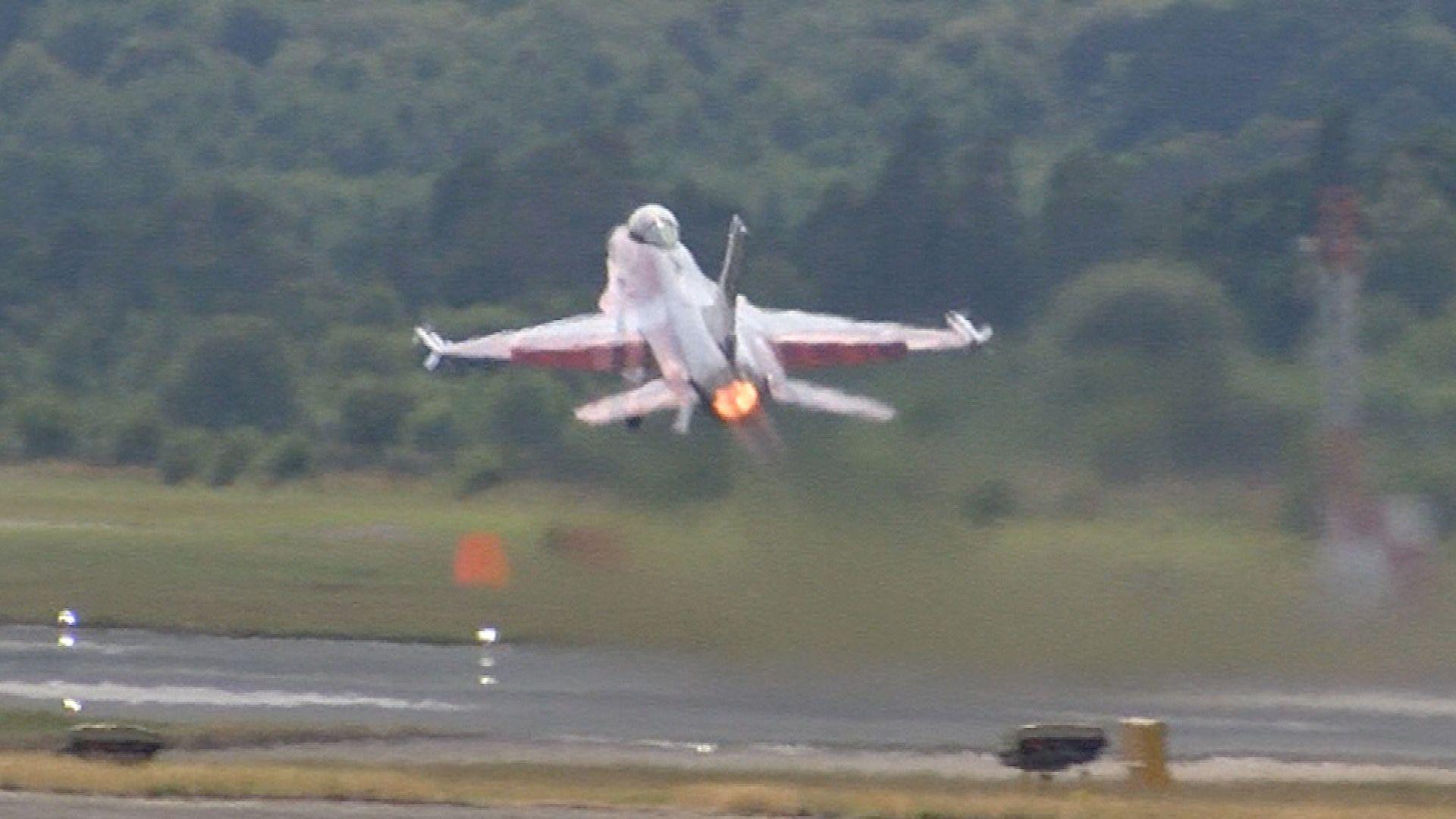Political change and conflict backdrop for airshow

Boeing's F15 will be flying at the show with a simulated weapons load as conflicts mean many countries are taking a fresh look at their armed forces.
- Published
Britain's aviation industry will be pitching itself to the new government as one of the engines for economic growth at this week's Farnborough Airshow.
Aviation, defence and space are all major players in Britain's economy and sectors where the UK remains a significant presence on the world stage.
But this year's show is expected to see military plane makers taking a more central role than they have done since the end of the Cold War, due to conflicts and potential flashpoints from Ukraine through the Middle East to the South China Sea.
The industry is also trying to demonstrate that flying can be made more sustainable, despite its current reliance on fossil fuels.

The US Air Force will have its biggest presence at the show in decades.
Farnborough may have started out as a British affair, but these days it is very much a global market.
This year's show is the first to sell out in two decades and the 1,500 exhibitors come from 40 different countries.
But home-grown talent will be hoping to sell itself to a string of senior politicians from the new Labour government who are expected to visit the show.
Farnborough International CEO Gareth Rogers said "high-value manufacturing" is a feature of aerospace and defence across the UK.
"Growth in these industries is really important for the GDP of UK plc," he said. "That will be the overriding message to the ministers who attend."

Airshow Chief Executive Gareth Rogers said the aviation sector was really important for the UK economy.
His view has been echoed by the Farnborough Aerospace Consortium, which represents hundreds of British firms in the sector. It said they "stand ready to contribute to the economic growth ambitions of the government".
CEO Alan Fisher said: "In the defence sector it is important that the new government understands the importance that business plays in supporting our world class army, navy and air force.
"So a certainty about defence budgets is desirable."
Ministers have pledged to raise defence spending to 2.5% of the economy, but have yet to set out a timetable for the change. They have also launched a defence review.
Britain is not alone in looking afresh at its military spending in the face of growing instability.

Denmark is displaying an F16 fighter, similar to those recently gifted to Ukraine.
The show will halt a trend since the fall of the Berlin Wall that saw the industry increasingly looking to civil markets to keep up profits.
Russian aircraft, which thrilled the crowds after the collapse of the Soviet Union, are no longer welcome since Moscow's invasion of Ukraine.
For the first time Boeing, best known for its airliners, will not be bringing any of them to the show. Instead it will be displaying two F15 fighters, one in so-called "dirty" condition with a full weapon load.
The US Air Force meanwhile is bringing one of the firm's cold war vintage B52 bombers, which remain in frontline service.
"The military presence represents about 40% of the flying display," according to Joe Muir, the show's commercial director. "I think really that's a reflection of how important and prominent defence has become in the world at the moment."
Sustainability remains a big focus for the industry. As well as looking at replacements for fossil-based jets fuels, the exhibition halls have been fitted with solar panels and even delegates' badges have switched from plastic to paper, in a move critics have described as greenwashing.
But while show organisers insist the issue has not slipped down the agenda, CEO Gareth Rogers admitted: "It's just that other externalities, as it were, are now up there alongside it."